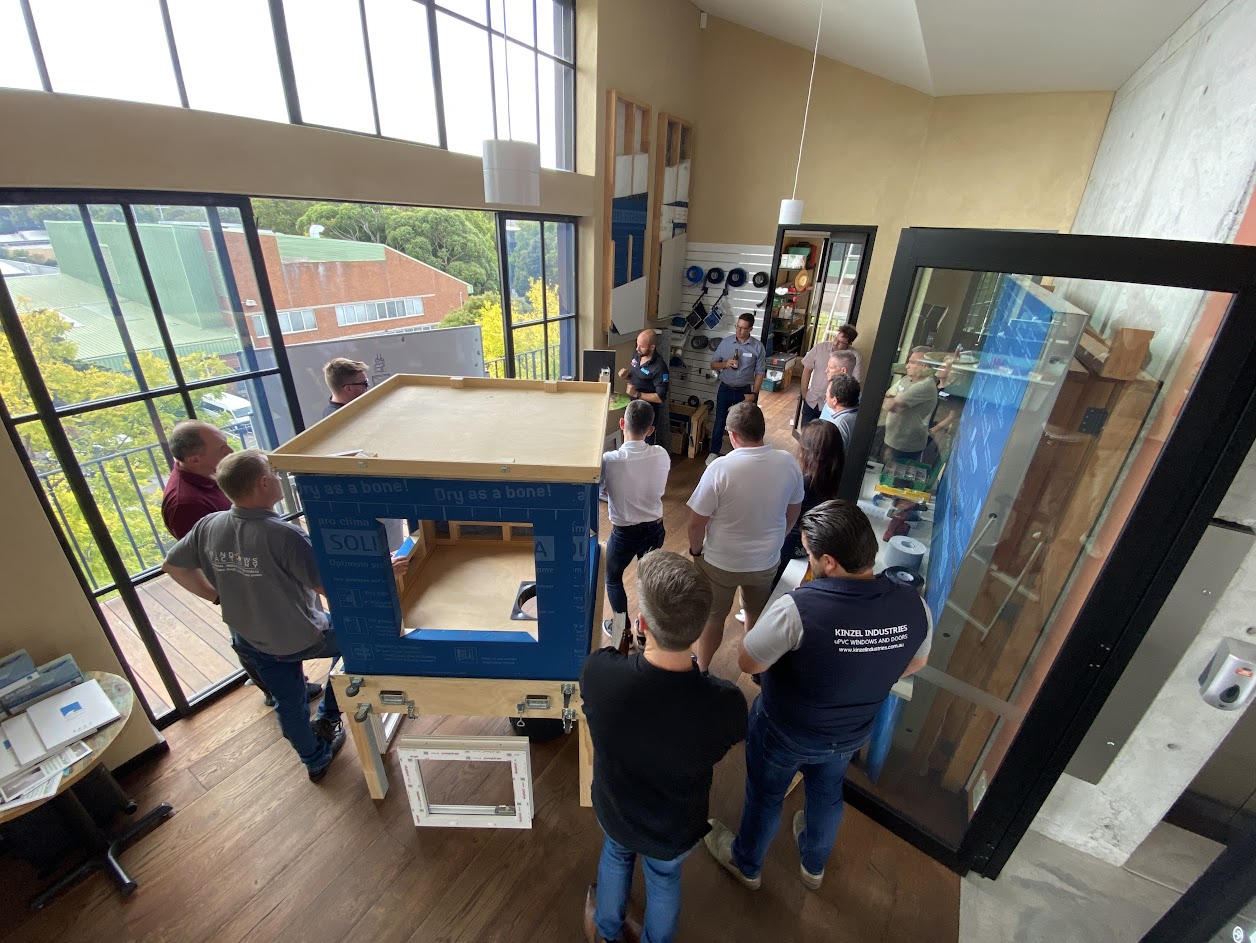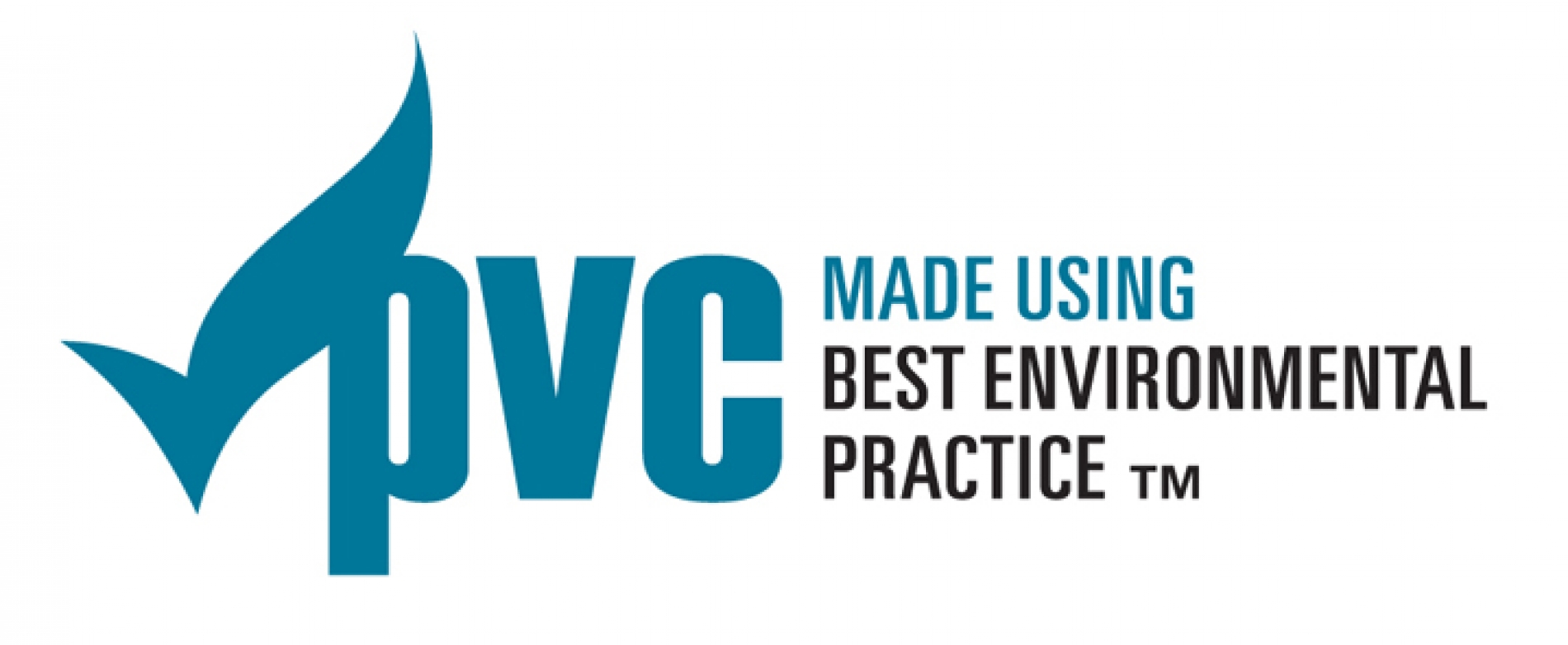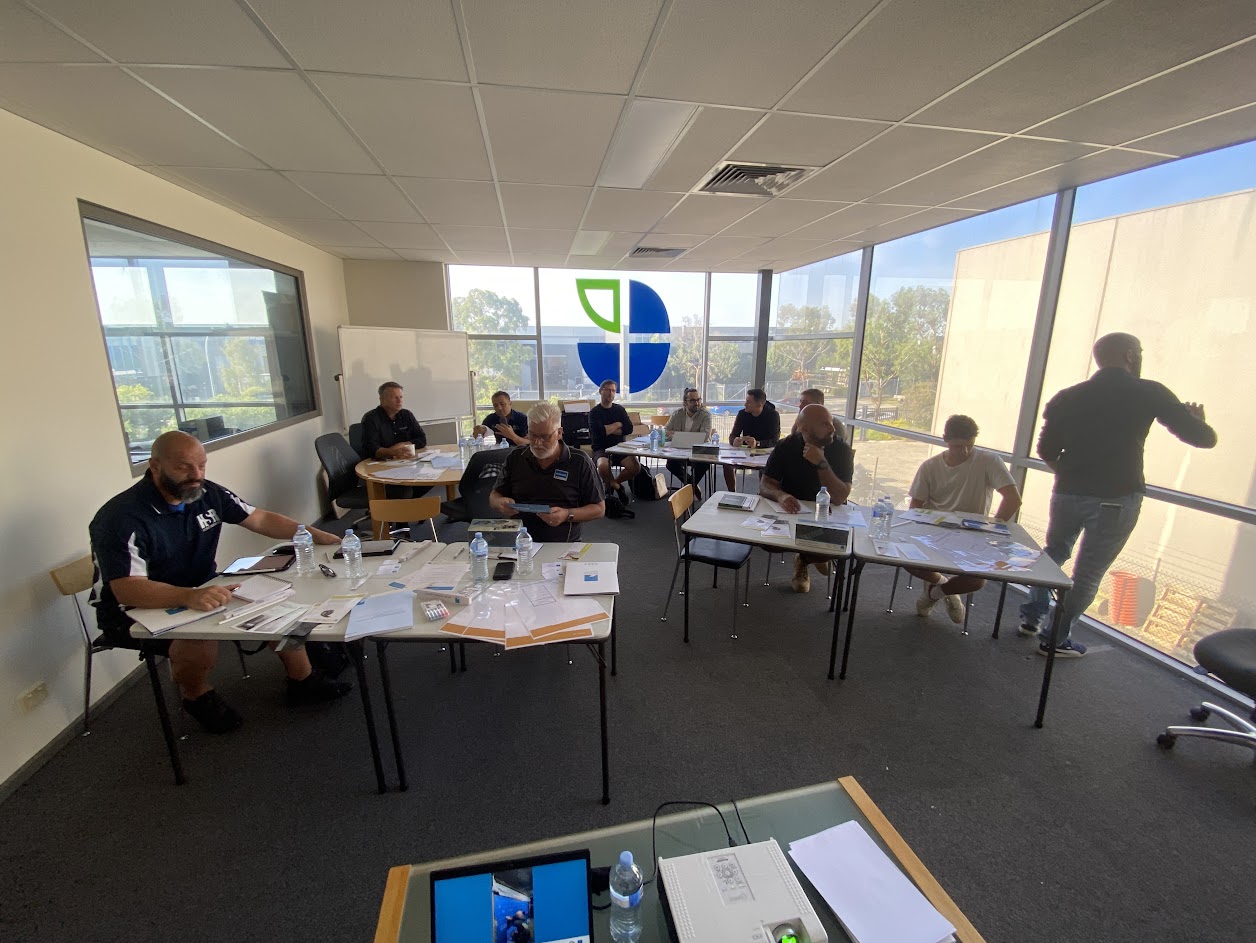VCA has unveiled a new video highlighting the crucial role that PVC plays in modern society, from our homes to our hospitals, as part of its efforts to support its partners across the PVC sector.
The VCA’s ‘Build a Better World with PVC’ video was launched to coincide with the Global Plastics Treaty talks in Busan, South Korea, which failed to reach agreement on curbing plastic pollution at the beginning of December. Talks will be resumed at a later date.
The video emphasises the beneficial role PVC can play in modern life and its proven track record after multiple decades of use in a wide range of applications, from robust, long-life building products to critical life-saving equipment in healthcare.
The material’s durability, versatility and reliability in meeting both environmental and economic needs is illustrated in a series of images showing how extensively we depend upon and benefit from items made from PVC.
PVC is a remarkable, long-life material that has shaped our modern lives safely and efficiently for decades and will continue to do so. Its excellent recyclability means end-of-life products can often be recycled into new long-lasting PVC products.
For more than 22 years, the VCA’s PVC Stewardship Program has been focussed on furthering the safety and sustainability of the PVC industry in Australia and ensuring that it remains a useful pathway towards achieving Best Environmental Practice (BEP) 2.0 accreditation. Compliance requirements have been strengthened for several commitments demonstrating commitment to continuous improvement.
While PVC has always been subject to regulation, our mission is to ensure that a balance is achieved against the potential loss of utility. The general consensus among the members of the Global Vinyl Council is that PVC is a positive contributor to the achievement of multiple UN Sustainable Development Goals and that ill-considered bans of PVC and PVC products will be counterproductive.
With a strong global focus on our environment and the ever-increasing cost of materials, now more than ever, using durable and cost-effective PVC products makes sense.
You can view the ‘Build a Better World with PVC’ video at https://youtu.be/oPUmV0aCwnw.
Vinyl Council launches updated Best Environmental Practice PVC product verification scheme
Written by Rainjan BlakersFollowing extensive consultation with stakeholders, the Vinyl Council of Australia (VCA) has launched its updated ‘Best Environmental Practice PVC (BEP) v 2.0’ verification scheme for PVC products with the VCA taking on full responsibility for ongoing development, management, and administration of the updated BEP scheme.
Originally launched in 2010, the BEP scheme remains the most stringent criteria and guidelines for manufacturing PVC with participants required to meet conditions including VCM emissions targets, voluntary restrictions of additive use and stewardship requirements for end of first use of PVC products in Australia. Under the updated BEP scheme, products that are independently verified as being fully compliant with all core and one or more optional scheme guidelines are eligible to be issued with a Best Environmental Practice PVC Licence Mark by the VCA, and included in the online product register to indicate to procurers and specifiers that the BEP PVC manufacturing guidelines have been met.
While the original BEP scheme was only applicable to PVC products used in the building and construction sector, the updated BEP accreditation is available to all complying PVC products across the full spectrum of PVC applications.
Following the launch of the updated scheme, it is important to note that there will be a transition period as current BEP accreditation will continue to be valid until the existing verification expiry. The updated BEP guidelines will become mandatory from 1st September 2023 onwards when companies seek renewal of their BEP accreditation, however the VCA encourages all companies undergoing the auditing process prior to this date to elect to be audited against the updated guidelines.
“The BEP 2.0 product certification scheme continues to reflect ongoing best practice in PVC manufacturing through the core guidelines, while also reflecting societal expectations for increased focus on the environmental and social impacts of products and materials through the addition of optional criteria,” said VCA CEO Jim Coulston.
The VCA has worked closely with the Green Building Council of Australia (GBCA) to ensure that the updated BEP scheme is recognised under the GBCA’s Responsible Products Framework, which seeks to drive the supply chain to deliver transparent, healthy, low-impact products that are part of a circular economy.
To learn more about the guidelines and audit requirements involved in gaining BEP verification, please click here.
More...
Call for papers for PVC 2024 conference extended till 31 May 2023
Written by Rainjan BlakersProspective authors are invited to submit abstracts of up to 300 words for consideration for the program for the IOM3's PVC 2024 conference, up until the extended deadline of 31st May 2023. The abstract must provide sufficient information for a fair assessment including the objective of the paper, the methodology used and the conclusions or results of the work. The abstract must be written in English.
Find out more and submit your abstract by clicking here.
The PVC 2024 conference continues to build on its reputation as the leading global conference, delivering a comprehensive, varied and programme of excellent international speakers and exceptional networking opportunities.
Previous delegates describe their experience at the PVC Conference as well organised and enjoyable, providing an excellent opportunity to network, meeting established and new contacts, plus providing a great opportunity to update their knowledge of the latest developments in the industry.
Over 35% of delegates include Senior Management Team Members (including CEOs, Directors, Vice Presidents and senior managers, e.g. function heads and technical specialists), with a further 41% in other management roles.
Dr Jason Leadbitter, CEnv, FIMMM, PVC 2024 Chair – ‘PVC 2024 returns to Edinburgh for the first time as an in-person event in April 2024, some seven years since our last physical meeting. Whilst the vinyl industry continues to be challenged by our European regulators, the PVC industry continues to be a beacon of light and an exemplar in walking the talk from a sustainability perspective. Indeed PVC 2024's theme 'A Roadmap to a Sustainable Future' will demonstrate over this three day event, just how far the global PVC industry has transitioned on its path towards full sustainability'.

Course materials from Vinyl Council fire behaviour course available for purchase
Written by Rainjan BlakersThe Vinyl Council of Australia successfully held its 4-day Hazards from Fire: Quantification of Fire Behaviour Fire Retardancy and Fire Toxicity course in Melbourne last month, with world-renowned fire expert Prof. Richard Hull leading the intensive course which was attended by industry leaders from across the PVC and manufacturing sectors.
Prof. Hull, Professor of Chemistry and Fire Science from the School of Natural Sciences, University of Central Lancashire, is a leading expert in the behaviour of unwanted fire with over 100 published papers on the assessment and influence of fire retardants on flammability, toxicity of fire smoke and effects of fire retardants on the smoke toxicity.
The carefully designed course covered the fundamentals of fire behaviour and provided a highly-valuable opportunity for those in attendance to further their knowledge regarding the fire behaviour of modern materials. Feedback from attendees found the course to be well-structured and Prof. Hull a particularly engaging presenter.
Over the 4 days, the course covered a wide range of focus areas including an introduction to fires and fire science, polymer decomposition mechanisms and how it’s studied, interpretation of thermal analysis and cone calorimetry data, measurement of flammability and interpretation of results, fire retardants and hazards and lessons from real fires, particularly the rapidity of fire spread and how quickly the primary toxic products in smoke – Carbon Monoxide and Hydrogen Cyanide - can debilitate and kill in a developed fire. Delegates also enjoyed an engaging networking dinner with Prof. Hull after the penultimate day.
The course materials, including a full copy of Professor Hull’s lecture notes and slides across the 4 days, are available for purchase from the VCA. To find out more, please contact the VCA Office at This email address is being protected from spambots. You need JavaScript enabled to view it..
Vinyl Council issues final call for feedback on Best Environmental Practice PVC scheme
Written by Rainjan BlakersThe Vinyl Council of Australia (VCA) is holding a second final consultation and feedback period for its updated Best Environmental Practice (BEP) 2.0 PVC product verification scheme, following extensive consultation with stakeholders over recent months.
Launched over a decade ago, the BEP scheme remains the most stringent criteria and guidelines for manufacturing PVC with participants required to meet conditions such as emissions targets below regulatory limits, voluntary restrictions on the use of certain additives and stewardship requirements for end of first use of PVC products in Australia.
Under the current BEP scheme, products that are independently verified as being fully compliant with all scheme guidelines are recognised in the GBCA’s product certification scheme for Green Star building rating tools, as well as other public and private procurement policies in Australia.
The VCA also issues a Best Environmental Practice PVC Licence Mark and provides an online register of PVC product manufacturers that are confirmed as meeting the guidelines’ required stringent compliance conditions. BEP accreditation can be achieved by manufacturers not only in Australia but around the world, with PVC products manufactured in Europe, the US and Asia among those having achieved BEP verification.
Updates to the BEP scheme will result in closer alignment of the scheme guidelines with the VCA’s PVC Stewardship Program commitments, which represent an ongoing, voluntary undertaking by companies within the Australian PVC industry to recognise and address relevant environmental, health and safety aspects within the lifecycle of PVC products.
Following an extensive consultation and review period on the scheme with the GBCA and various stakeholders over a period of close to a year, since the prior consultation round in late 2022 each BEP guideline has been reclassified as ‘Core’, ‘Mandatory’, or ‘Optional’. Additional information has also been added regarding the historical development of the scheme, and some minor changes to auditor guidance, wording and evidence requirements has taken place.
The VCA is once again offering any further interested parties a final chance to provide feedback on the detailed compliance criteria and verification requirements proposed for the updated scheme moving forward. The VCA aims to launch the updated BEP 2.0 scheme criteria and guidelines by mid-2023.
If you wish to provide feedback, please contact the VCA at This email address is being protected from spambots. You need JavaScript enabled to view it. to receive a copy of the proposed changes and other relevant information. All feedback must be received by the close of the final consultation period on Friday 28th April 2023 to be considered.
Installation workshops explore current standards and higher-performing practices for the building industry
Written by Rainjan BlakersThe Vinyl Council of Australia (VCA) and window-sealing experts Pro Clima’s collaborative windows installation workshops, held in both Sydney and Melbourne over the last two weeks, brought together close to 40 industry leaders from the uPVC windows sector across the two sessions.
Led by the Pro Clima team, the workshops firstly identified the current installation practices commonly experienced across the industry through collaborative discussion and workshopping activities with attendees, before examining learnings from window design and installation methods both domestically and internationally as a guide to exploring the importance of higher-performance installation and best-practice methods for uPVC windows in Australia.
The afternoon session included a live installation demonstration lead by the Pro Clima master carpenter who detailed industry best-practice techniques for the installation of uPVC window frames in a timber reveal. The workshops concluded with a robust discussion on key take-aways and learnings for the industry with attendees.
High-performance installation practices and weatherproofing of windows as they are fixed and sealed into building structures is one of the key determinants of the level of insulation, energy efficiency and watertightness in a building over time. The strong level of interest and discussion across both workshops was a testament to the commitment of uPVC window fabricators, installers and suppliers to work towards a recognised standard of windows installation in the industry.
We would like to thank the team at Pro Clima for their time and effort in leading the workshops, as well as hosting and providing catering for the Sydney session. We also thank the team at Windows For Life for hosting the Melbourne session, and Deceuninck Australia for providing catering.
We look forward to bringing the industry together for similar events, and invite any member who is interested in being involved in leading a workshop or session for the betterment of the industry to contact the VCA Office.









